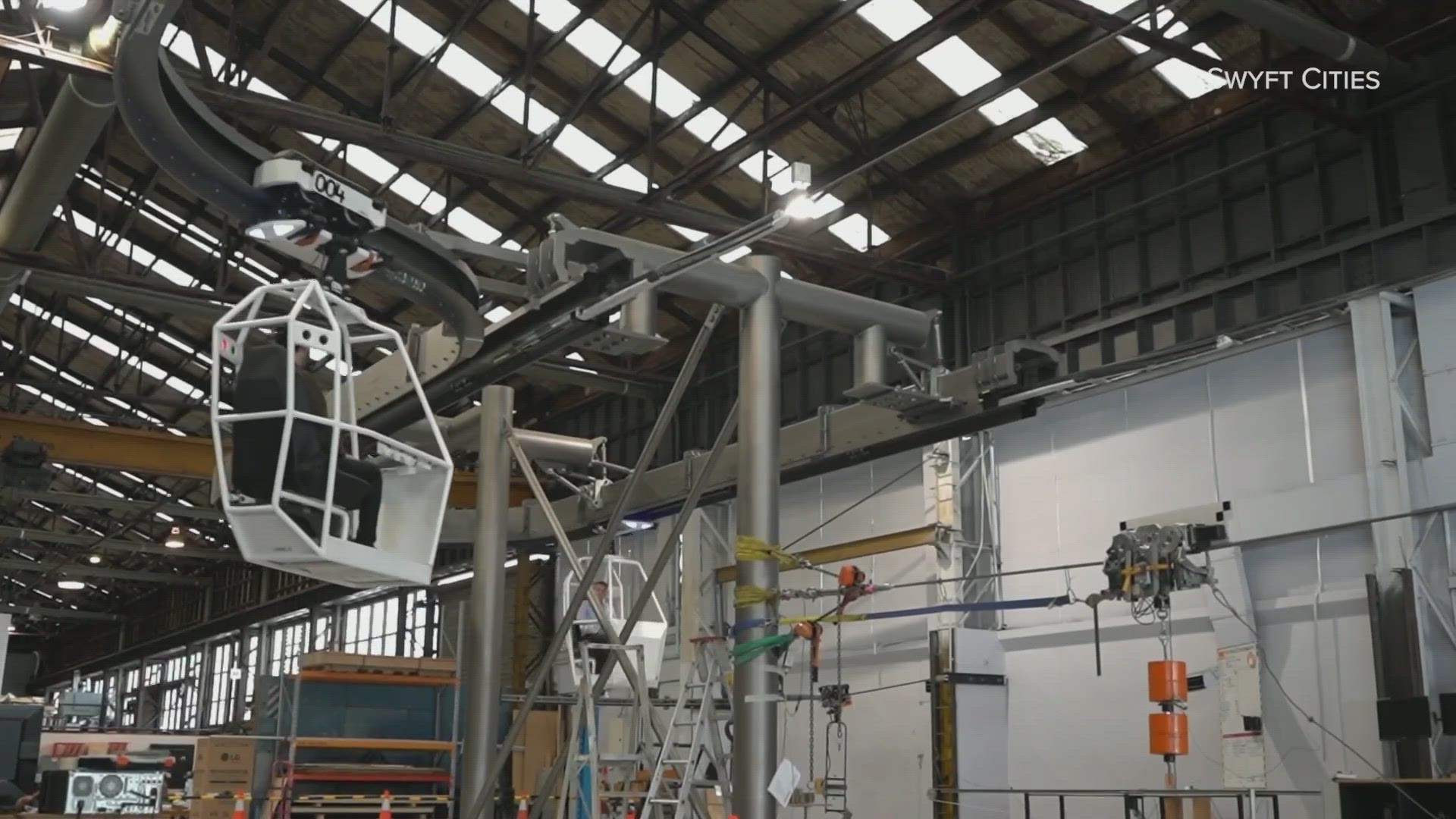PLANO, Texas — One North Texas city will have a crack at a unique mode of transportation. The high-tech aerial transit system could prove useful in an increasingly congested North Texas region.
Swyft Cities advertises itself as a place that designs and builds "20th century gondolas with 21st century technology."
The city of Plano is flirting with the idea of the high-tech gondolas. The Regional Transportation Council (RTC) is taking applications from cities.
RTC Chairman Duncan Webb told WFAA that there has been interest from "multiple" North Texas cities but Plano has, by far, been the most publicly interested.
"These are very much like an Uber vehicle except there's no driver," said Plano City Councilman Rick Grady.
The city had first entered into talks with JPods, another firm that develops a gondola-type moving system. According to a city representative, during a council meeting, talks with JPods had dissolved and Swyft Cities moved in.
"Our solution combines an autonomous cabin with a lightweight, fixed cable infrastructure to move passengers at a lower cost per mile with fewer carbon emissions than conventional transportation alternatives," reads the company website for Swyft Cities.
Jeral Poskey is the CEO of Swyft Cities. He said they have a product that will help ease congestion in entertainment or commercial districts. The firm is looking for a test site to set federal certification and regulatory standards.
"We see our selves as a district solution; covering to a small to midsize area... three to five miles and solving the transportation within that district," said Poskey.
An ideal location in the city of Plano would be the west Plano area. It boasts retail, commercial and restaurant space straddling the Dallas North Tollway. Between Shops At Legacy, Legacy West and Legacy Town Center, a gondola system could connect all of them.
The city has previously explored routes spanning eight miles. But, all indications are the early test sites would only include a smaller two to three-mile stretch.
"When you have more and more congestion, you've got to get people out of their cars and off the streets," said Webb.
Unlike a ski lift, this mode utilizes a cable system where only the car moves and only to where you want to using an app without stops in between. There are currently two prototypes built, one in California and another in New Zealand.
The North Texas project calls for cars holding three to four people, and Swyft says, up to six people with wheelchair access.
The cities have until April 10 to apply for the CERTT, Certification of Emerging nd Reliable Transportation Technology, program through the North Central Texas Council of Governments.

